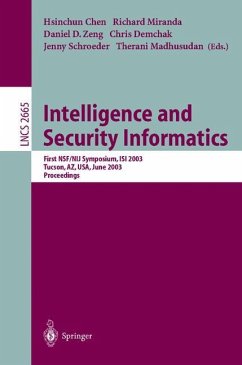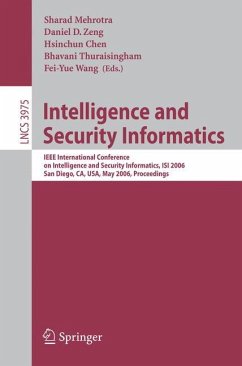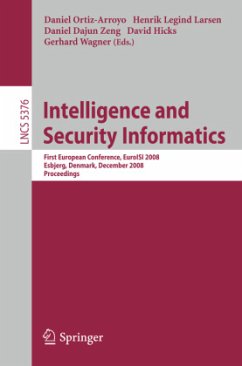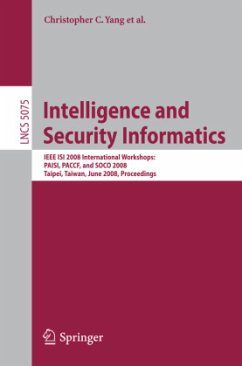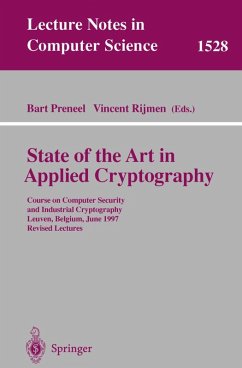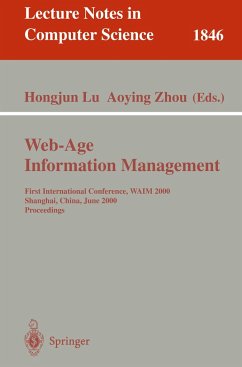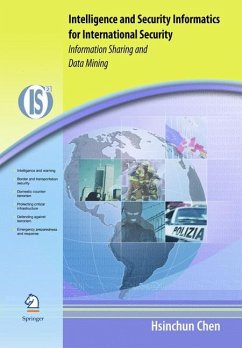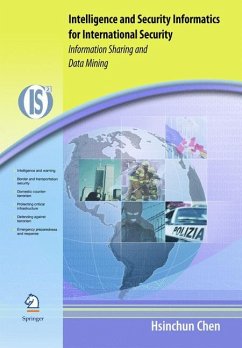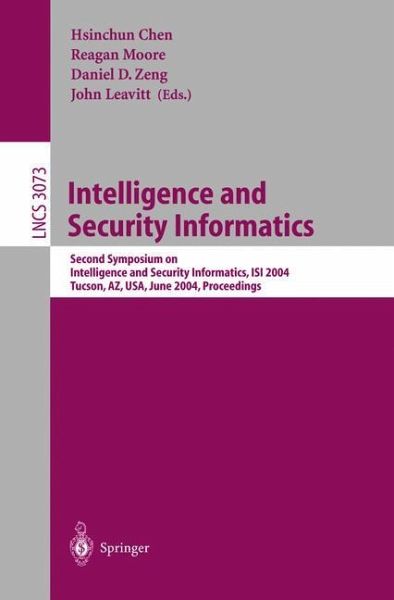
Intelligence and Security Informatics
Second Symposium on Intelligence and Security Informatics, ISI 2004, Tucson, AZ, USA, June 10-11, 2004, Proceedings
Herausgegeben: Chen, Hsinchun; Moore, Reagan; Zeng, Daniel D.; Leavitt, John
Versandkostenfrei!
Versandfertig in 1-2 Wochen
77,99 €
inkl. MwSt.
Weitere Ausgaben:

PAYBACK Punkte
39 °P sammeln!
The past two years have seen signi?cant interest and progress made in national and homeland security research in the areas of information technologies, orga- zational studies, and security-related public policy. Like medical and biological research, which is facing signi?cant information overload and yet also trem- dous opportunities for new innovation, the communities of law enforcement, criminal analysis, and intelligence are facing the same challenge. As medical - formatics and bioinformatics have become major ?elds of study, the science of intelligence and security informatics is now emerg...
The past two years have seen signi?cant interest and progress made in national and homeland security research in the areas of information technologies, orga- zational studies, and security-related public policy. Like medical and biological research, which is facing signi?cant information overload and yet also trem- dous opportunities for new innovation, the communities of law enforcement, criminal analysis, and intelligence are facing the same challenge. As medical - formatics and bioinformatics have become major ?elds of study, the science of intelligence and security informatics is now emerging and attracting interest from academic researchers in related ?elds as well as practitioners from both government agencies and industry. Broadly de?ned, intelligence and security informatics is the study of the - velopmentanduseofadvancedinformationtechnologiesandsystemsfornational and homeland security related applications, through an integrated technological, organizational, and policy based approach. The First Symposium on Intelligence and Security Informatics (ISI2003) was held in June 2003 in Tucson, Arizona. It provided a stimulating intellectual forum of discussions among previously d- paratecommunities:academicresearchersininformationtechnologies,computer science, public policy, and social studies; local, state, and federal law enfor- ment and intelligence experts; and information technology industry consultants and practitioners. Building on the momentum of ISI2003, we held the Second Symposium on IntelligenceandSecurityInformatics(ISI2004)inJune2004inTucson,Arizona.





